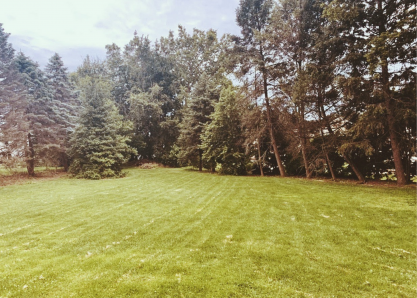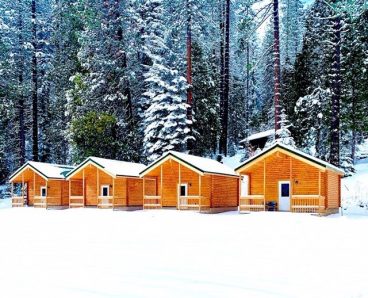Congratulations! The decision to begin your own campground is one that takes a lot of heart and dedication. It takes believing in the power of escape – the significance of getting away in order to return refreshed, recharged and ready for the day to day again. Maybe this was always the dream for you. Maybe you have longed to give back to a community that so desperately needs to look up from their screens and press pause on their rhythms of life. Whatever the dream or motivation, you are stepping into an endeavor that is exciting and fulfilling. However, you can’t take a first step without land. Here are three things to consider before buying land so that you and your future campers can put their best foot forward.

Location
Give your campground a very specific purpose with a targeted market. An organized business plan that includes this information will be a beneficial tool to steer your vision in the right location. Real estate agents can be helpful in narrowing down land options for you, especially those who work specifically with commercial projects and land transactions. Their expertise can give you a better picture of what is best for you and can possibly save you money in the process. You want to choose a piece of land that even without the additions of buildings and facilities, is an attraction all on its own to the people you want visiting. Surrounding scenery, distance to the nearest town, and even weather are factors that play into where campers go. Hence, thinking like them is going to help you make the right decision when buying land.
Legality
Real estate agents can not only help you decide on where to plant your campground roots, but they can also help you navigate through the legal details that come along with purchasing land and becoming a campground owner. A few good questions to ask: What permits do I need? Are there any code restrictions I should be aware of? What about future development plans? A local realtor should be able to give you that information and direct you to the appropriate offices in the area where everything can be completed. Restrictions and regulations vary from state to state and even from town to town. So do your due diligence to not let legal matters stop you from acquiring the land where you envision your campground to flourish.

Lodging
When your guests come to visit your property, you’re going to want to offer them space to either park their own lodging, or even better, have that already waiting and ready for their visit. The right piece of land is going to determine what that will look like. Log cabin kits are an attractive option to have on the property because they offer an all-year round visiting potential – giving you a healthy ROI. There is also a diversity of cabin options such as multi-purpose facilities and bathhouses that present more possibilities on your campground than others that do not have these structures. It’s important to see how you can set your campground a part even in the initial stages of purchasing land because it will show that you were intentional in keeping your guests’ best interests at heart right from the beginning. In fact, according to Condor Ferries, “the top factors that influence [campers’] campground selection were campground atmosphere (24%), campground location (22%), quality of campsites at the campground (18%), availability of the cabins (9%), the types of sites available (12%), the onsite recreations opportunities (5%) and Wi-Fi availability (3%).” Keep these statistics in mind as you’re making decisions for your campground.
There’s a lot that goes into owning and maintaining a campground. Ask any owner and they’ll tell you it’s hard work with plenty of responsibility. But if you do it right, put in the research, and don’t overlook the importance of securing a valuable piece of land, the benefits will make it all worth it in the end.

Julia Selwyn
About the Author
Julia holds a BA degree in Communication Studies and is passionate about using words well to tell the stories that matter most in our world. When she’s not working on new ideas for Conestoga Log Cabins, you can find her decorating, baking, or looking at vintage typewriters while antique shopping – all done with a cup of coffee not too far away.
